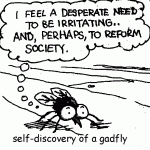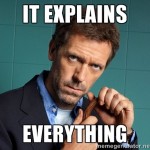This post is part of a Patheos Pagan series this month, “Why I Am Still a Pagan” (or Witch, Wiccan, Polytheist, Druid, Heathen, etc.), in which bloggers write about why we have continued to embrace our particular path and where we think that path is headed in the future.
The Problem of Paganism
The question why I am “still” a Pagan implies that there might be reasons why I would not want to identify as Pagan any longer. And there are. I believe that Paganism has the potential to transform our relationship with the earth, with each other, and with our deeper selves — but a lot of the time, I cannot relate to other Pagans.
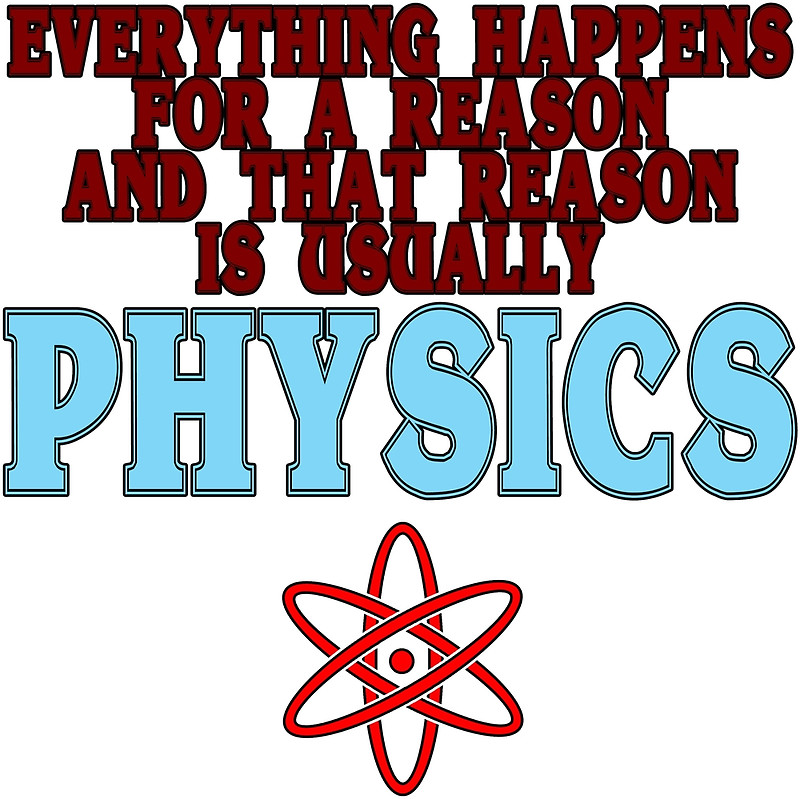
Among other things, I have a problem with the common Pagan belief in practical or instrumental magic — the idea that we can cause physical change at a distance without corresponding physical action. To me, this kind of “magic” is just ritualized wishful thinking. It is based on the false premise that thought or intention alone can change the material world. Worse, I think it can become just another form of “technology” that contributes to the disenchantment of the world. I also have a problem with belief in invisible beings, including gods, spirits of ancestors, fairies, and so on. To me, these beliefs resemble too closely the belief in an invisible monotheistic God that I abandoned before I became Pagan. I remember how certain I was of the existence of that God at one time. And I just don’t see any metaphysical difference between Yahweh and the Morrigan — and so I don’t believe in either. Like Carl Sagan, I believe “the world is so exquisite with so much love and moral depth, that there is no reason to deceive ourselves with pretty stories for which there’s little good evidence.”
But it’s not just magic and gods. Paganism unfortunately seems to be taken by many as a license to believe any fantasy we want want. “So, you were a priestess in Atlantis or you were burned as a witch in a former life? So you can see fairies? You collect pretty rocks with magical powers? You can control the weather with your mind? You can heal people far away by sending them positive energy? Well, it’s all good because you’re Pagan.” The one rule seems to be that no one is allowed to question another person’s beliefs.
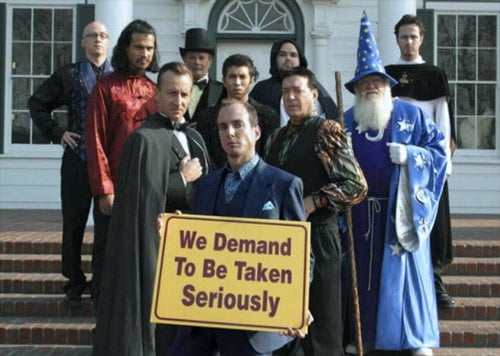 Paganism doesn’t have any commandments, per se, but if we did, I think First Commandment of Paganism would be “Thou shalt not judge another’s experience”. And from where I stand, this is a problem. If we really want to avoid orthodoxy (as we so often claim), then we need to have more discussion, not less – and some of that discussion needs to be constructively critical. We need to get comfortable with idea that criticism can be constructive. So long as we avoid criticism, we are vulnerable to self-deceit and groupthink. Sometimes that criticism can come from friends, but sometimes it takes an outsider to challenge us to ask the hardest questions about ourselves and our experiences. When done in a spirit of openness and humility, critical questioning benefits both sides in the conversation, and the community as a whole. I admit, though, that I’m not always open and I rarely manage humility.
Paganism doesn’t have any commandments, per se, but if we did, I think First Commandment of Paganism would be “Thou shalt not judge another’s experience”. And from where I stand, this is a problem. If we really want to avoid orthodoxy (as we so often claim), then we need to have more discussion, not less – and some of that discussion needs to be constructively critical. We need to get comfortable with idea that criticism can be constructive. So long as we avoid criticism, we are vulnerable to self-deceit and groupthink. Sometimes that criticism can come from friends, but sometimes it takes an outsider to challenge us to ask the hardest questions about ourselves and our experiences. When done in a spirit of openness and humility, critical questioning benefits both sides in the conversation, and the community as a whole. I admit, though, that I’m not always open and I rarely manage humility.
Those who read this blog on a regular basis will know that I don’t have any qualms about telling people I think they are wrong to believe as they do. While I’m not going to deny that anyone had an experience, I am entirely comfortable with criticizing other people’s interpretations of their experiences … and I welcome people to do the same for me. There is, I think, a critical difference between judging other people’s experiences and judging their interpretations of their experiences. I won’t tell another person that they didn’t feel what they felt, but I will question the meaning they have assigned to their experience. Admittedly, this can often feel like the same thing to the person whose interpretations are under scrutiny — especially those who don’t acknowledge the interpretive step. And it is precisely those experiences which seem to come with ready-made interpretations that we most need to examine critically if we are to lead authentic religious lives.
Rather than “Thou shalt not judge another’s experience,” I would rather see the First Commandment of Paganism be, “Thou shalt keep an open mind.” And this would be observed by both sides in any conversation. On the one hand, it would protect against groupthink and unconscious orthodoxies. And on the other hand, it would protect against destructive forms of criticism which are born of a need to be right about everything — something I’m prone to. I recognize that everyone needs safe spaces where they can talk about their experiences, and their tentative interpretations of those experiences, without fear of criticism, constructive or otherwise. But if that’s where we choose to stay, then those “safe spaces” become intellectual ghettos. And I am afraid that is what a lot of the Pagan community has turned into.
The Promise of Paganism
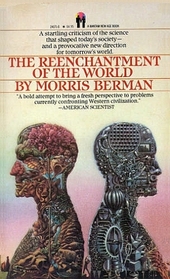 But, in spite of all of this, I believe in Paganism. More than any other contemporary religious movement I have encountered, I believe Paganism has the potential to reenchant the world. Morris Berman, the author of The Reenchantment of the World, writes that the story of the modern epoch is one of progressive disenchantment, a loss of the sense of our essential participation in the world. To facilitate a scientific understanding and control of the natural world, humankind sought to separate itself from nature, to step “outside” and become observers of the world, to see the world as an object. “Scientific consciousness is alienated consciousness,” writes Berman. This became not just a scientific method, but our ordinary, everyday consciousness. The result is individual neurosis, social alienation, and environmental degradation.
But, in spite of all of this, I believe in Paganism. More than any other contemporary religious movement I have encountered, I believe Paganism has the potential to reenchant the world. Morris Berman, the author of The Reenchantment of the World, writes that the story of the modern epoch is one of progressive disenchantment, a loss of the sense of our essential participation in the world. To facilitate a scientific understanding and control of the natural world, humankind sought to separate itself from nature, to step “outside” and become observers of the world, to see the world as an object. “Scientific consciousness is alienated consciousness,” writes Berman. This became not just a scientific method, but our ordinary, everyday consciousness. The result is individual neurosis, social alienation, and environmental degradation.
A reenchantment of the world, then, means the fostering of an expanded consciousness of the radically interconnected nature of our relationship to the world. “Change the prevailing mode of consciousness and you change the world,” wrote Theodore Roszak. A reenchanted consciousness runs counter to the social and spiritual alienation which is the inheritance of a positivistic science which reduces nature (including human beings) to mechanism and a consumeristic capitalism which reduces all of nature (including human beings) to resource and commodity. These two forces — positivistic science and consumer capitalism — level life down to only those things which can be measured and those things which can be bought and sold. Nothing else is considered real or meaningful. These two forces have such power over our minds, so deep rooted are their assumptions, that it becomes nearly impossible for us to imagine any other way of being. And so many treacherous parodies of freedom and joy are manufactured by our culture, that the only name we can think of for our gnawing sense of unfulfillment is “mental illness” — and for such “illness” copious amounts of pills are available.
Paganism holds out the promise of restoring our awareness of a dimension of reality that eludes the grasp of the scientist and the salesman. This is dimension of human experience which includes what might be called “magic” — not the disenchanted magic of the occultists for whom it is just another technology, a means of controlling nature, but magic as an expression of wonder and connection. It is what the atheist Richard Dawkins calls “the magic of reality“. This dimension also includes the sacred. “Magic” and “sacred” — the first is a byword to the positivist, the second is meaningless to the consumer, but they are I think two of the most human of experiences. There is nothing other-worldly about this dimension of experience. In the words of Paul Eluard, there is another world, but that it is this one. What Lester Mondale wrote of “The Practical Mysticism of Ralph Waldo Emerson” I think describes what I am after:
“far from being fogged behind seven veils of Rosicrucian obscurity and centered in the inmost sphere of taboo and sanctity – is rather a hardy energy, met externally and internally, as rugged as the Andrew Jacksonite woodsman and pioneer, as common and yet as enigmatical as a dandelion, available to all, and as essential to the chemistry of the mind as the gases of the atmosphere – like life itself, dangerous and delicate, oftener below the consciousness than above it.” Mysticism and the Modern Mind, ed. Alfred Stiernotte (1959)
This is what I seek in Pagan ritual — not fantasies and wishful thinking — but life, more life.
The Catch
But separating this promise of reenchantment from all the superstitiousness in Paganism is not simple. In fact, the two often seem intertwined.
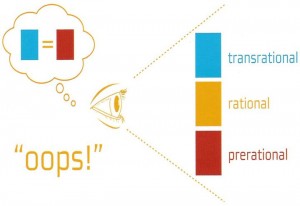
Ken Wilber talks about what he calls the “pre/trans” fallacy. I’m not going to do Wilber justice here, but part of the idea is that human psychological development moves through stages from pre-rational magical thinking to the rationality of scientific thought to trans-rational consciousness. The trans-rational stage transcends the limitations of positivistic rationality, with its egocentrism and logocentrism, but without loosing its insights and falling back into superstitious magical thinking. The difficulty is that the pre-rational and the trans-rational sometimes look a lot alike, and it is easy to confuse them. So a person who thinks they have transcended the the limitations of rationalistic consciousness may simply have reverted to a pre-rational mode of thought. And this, according to Wilber is exactly what a lot of Pagans have done. (Incidentally, some folks on the other end of the belief spectrum make the same mistake: failing to see any distinction between the pre- and trans-rational, they condemn it all as ir-rational.)
So how do we distinguish the pre-rational from the trans-rational in Paganism? How do we regain the sense of “magic” and without resorting to superstition? How do we incorporate the wisdom of pre-scientific cultures without loosing the rigor of the scientific method? How do we restore a sense of life and even personhood to our experience of the world around us without projecting our own imaginings onto nature? How do we awaken to other modes of consciousness without regressing into psychological infantalism?
I don’t have the answers. This blog can be understood as an attempt to work out an answer to that question.
For now I will say that, in spite of the tendency of many Pagans to confuse the pre-rational with the trans-rational, in spite of the uncritical attitudes and superstitious ideas that haunt a lot of Paganism, I still call myself a Pagan. I am still a Pagan because I believe that Paganism is a door to the trans-rational. I believe that Paganism has the potential to bring together the wisdom of our animistic forebearers and the discoveries of contemporary science in a way that has the power to reenchant the world.
If I can quote what one of my favorite authors, Theodore Roszak, said about the Counterculture, I think it applies well to contemporary Paganism (which not coincidentally arose out of the Counterculture):
“… I am at a loss to know where, besides among these dissenting young [and old] people and their heirs of the next few generations, the radical discontent and innovation can be found that might transform this disoriented civilization of ours into something a human being can identify as home. They are the matrix in which an alternative, but still excessively fragile future is taking shape. Granted that alternative comes dressed in a garish motley, its costume borrowed from many and exotic sources—from depth psychiatry, from the mellowed remnants of left-wing ideology, from the oriental religions, from Romantic Weltschmerz, from anarchist social theory, from Dada and American Indian lore, and, I suppose, the perennial wisdom. Still it looks to me like all we have to hold against the final consolidation of a technocratic totalitarianism in which we shall find ourselves ingeniously adapted to an existence wholly estranged from everything that has ever made the life of man an interesting adventure.“
Sources
Berman, Morris. The Reenchantment of the World (1984)
Greenwood, Susan. The Nature of Magic (2005)
Frisk, Trudy. “Paganism, Magic, and the Control Of Nature,” Trumpeter, Vol. 14, No. 4 (1997)
Harryman, William. “Can Paganism Ever Be Post-Personal?” Integral Options Cafe (May 17, 2006)
Roszak, Theodore. The Making of a Counter Culture (1969)
Rowan, John. “Paganism and the Pre/Trans Fallacy,” Pagan Dawn, Imbolc-Spring Equinox No. 186 (2013)
Wilber, Ken. Up from Eden: A Transpersonal View of Human Evolution Paperback (1981)


